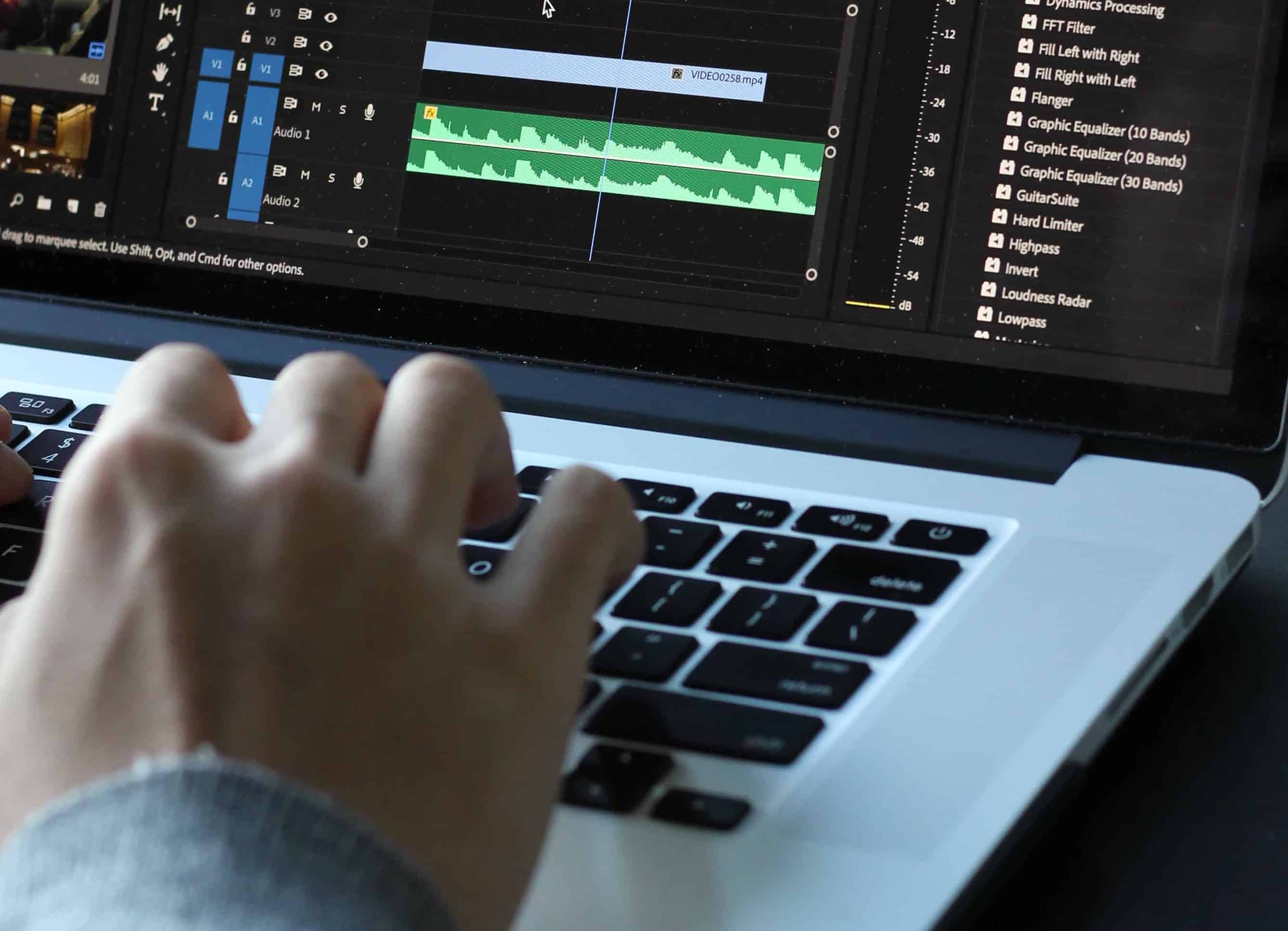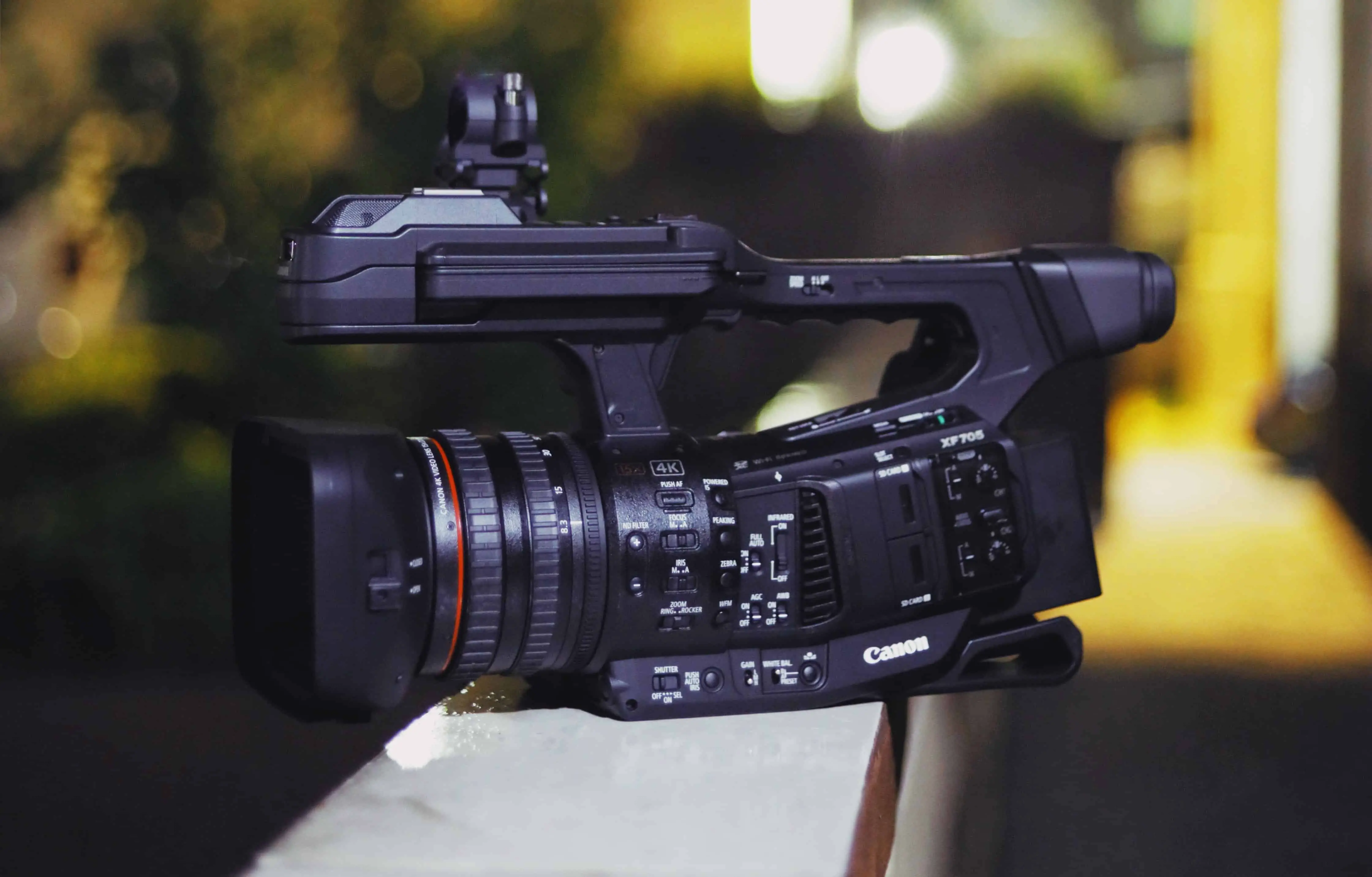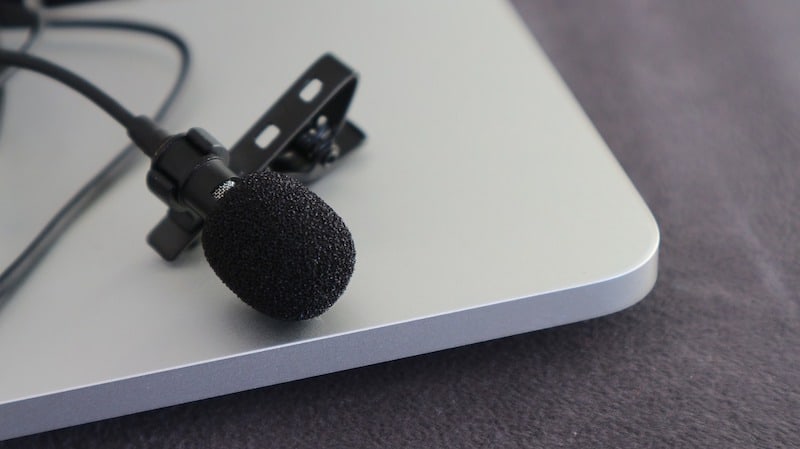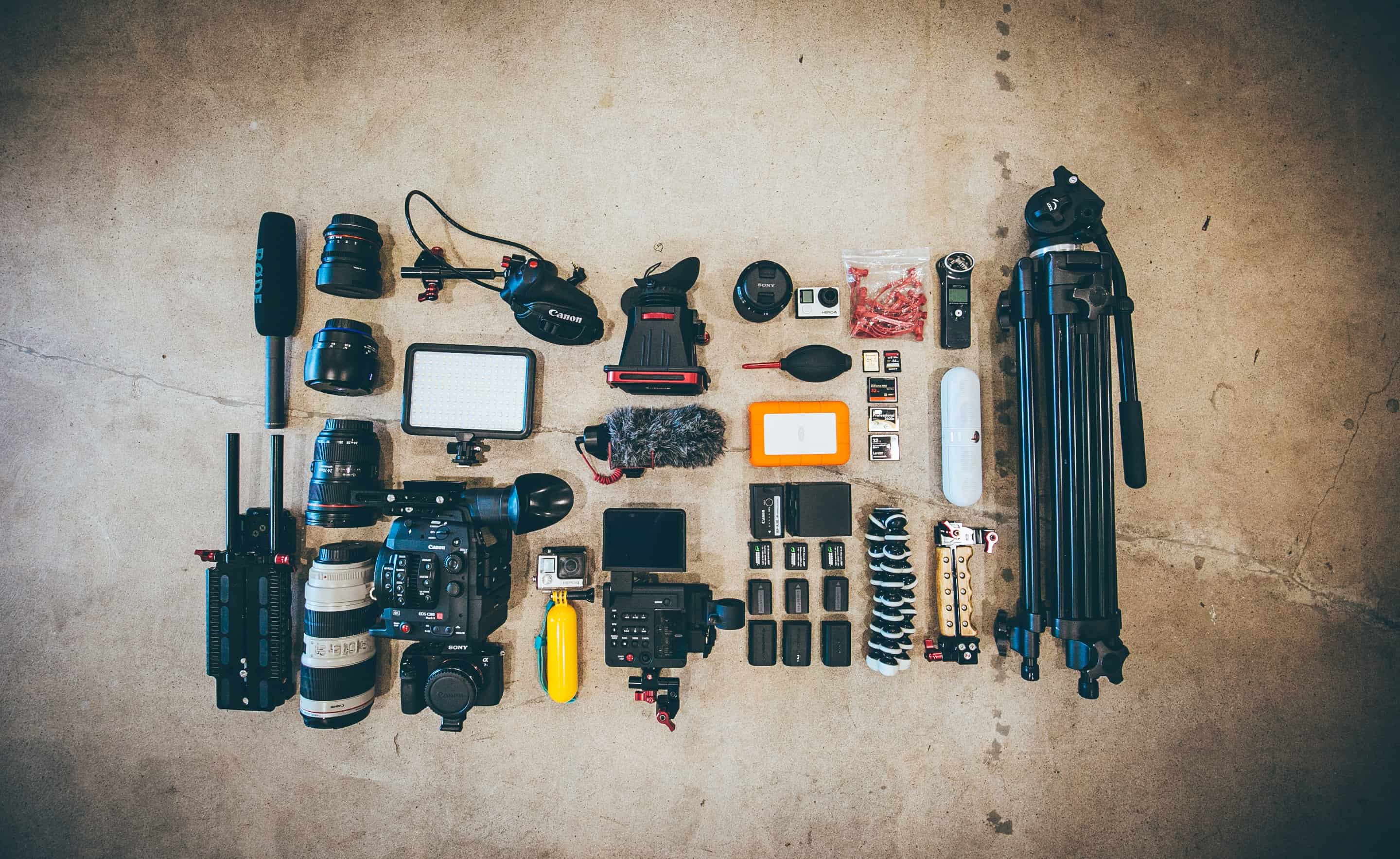
30 Jun Video Deposition Equipment: Complete Beginner’s Guide
Have you been thinking about starting your own video deposition services, but you’re not sure what equipment you need? I was in the exact same place several years ago, so I put together this guide to help.
What equipment do you need for video deposition? You will need the following:
- Video Camera (Preferably a Camcorder)
- A Sturdy Tripod
- Microphone
- Secondary Recording Device (Optional)
- Computer (For Editing)
- And Headphones
When filming depositions, you want your equipment to be light and easy to setup. Many times, depositions are held in small rooms, with a lot of people. As a deposition videographer, it is your job be as un-intrusive as possible. Having equipment that takes up the least amount of space, but provides great quality video, is key.
The Equipment
Camera
So, let us talk about the equipment listed above. The reason a camcorder is listed as preferable is due to its ability to record uninterrupted for a large amount of time compared to other options. Some cameras, like DSLRs (Digital Single-Lens Reflex Camera), limit the video recording length.
When it comes to depositions, this can be very bad as most depositions well exceed that 20-minute length. As stated above, you want to be as un-intrusive as possible, so if you are having to stop the deposition every 19 minutes to hit record again, you can lose clients.
Tripods
Tripods are the area that you can cut back in budget, as very little weight will be on it. Just ensure that the camera you use, preferably a camcorder, can be attached to the tripod head.
When it is attached, make sure it can be locked in place, without drooping over time. This drooping is caused by either the camera being too heavy for the tripod head, or being positioned to far forward or backwards. If your tripod does not support your camera, and starts drooping, your deposition video will suffer.
The ideal tripods for legal videographers are sturdy, reliable, and lightweight. You can find the ones that I recommend here.
Microphone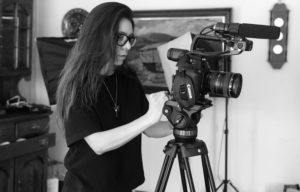
When it comes to microphones, you have a few options. You can attach lavaliers to the lawyers and client directly, or you can purchase a small phone tripod and attach the lavalier microphone to that, while placing it directly in the middle of the people.
Other options would be a shotgun mic attached to the top of your camera or an omnidirectional table microphone.
Secondary Audio Recorder
The secondary recording device is for the inevitable equipment failure. While out in the field, it is always a possibility that some piece of equipment will malfunction or be miss-used.
In the case of using a lavalier mic that is directly attached to a person, you are relying on them to not accidentally mess up the equipment. Having a spare audio recording device, such as an omnidirectional table mic, will ensure that you have a backup audio source. A camera’s internal microphone should never be used for anything but matching audio to in the editing phase.
Computer
When it comes to editing the files into a complete deposition video, you will need a computer. This can be done on a tower computer or a laptop. It all depends on the software you choose to use. As for deposition specific editing needs, all you need is a basic, cut and drag, editing software.
If you wish, you may also want to have software that allows you to input text of the case number, names, and dates. However, this is not a necessity.
There is free video editing software, like HitFilm and Blender. However, using professional software like Adobe Premiere or Final Cut Pro 10 (FCPX) is a good investment for deposition filming. Just read the description on the software you choose and make sure that your computer meets the needed specs.
Headphones
The last piece of vital equipment is headphones. Headphones are needed to preview the sound of the recording during the deposition. You do not want to film an entire deposition and find out while editing that no audio was recorded.
Having that optional backup audio source could also save you in this case, but that is not a recommended save. It is much better to ensure your audio is actually recording and only use the backup in cases where something was not picked up as clearly.
Additional Equipment
To film depositions, you must have a camera, tripod, mics, computer, and headphones. However, there are additional pieces of equipment that will make your job much easier.
These pieces of equipment are the following:
- Camera Bag
- Paperwork Folder
- Battery Packs
- Lighting
- Business Cards
- An Online Presence
Camera Bag
The original list of needed equipment requires a lot of items to carried around, and as mentioned above, it is your job to as un-intrusive as possible. If you are carrying in a bunch of bags, you will be taking up too much space.
Having a camera bag that fits all your needed items will not only make it easier for you to transport your equipment but can help set everything up more efficiently.
Paperwork Folder
While filming depositions, at the beginning of each video, it is your job to say the case number, ask the lawyers to state their appearances, and swear in the court reporter. Having paperwork that goes with each case and gives you a prompt, will help everything flow smoothly.
However, you cannot just shove the paperwork in your camera bag, you need a folder that can keep all your papers in order and neat. You do not want to give off an impression that their case does not mean anything to you.
Batteries
Batteries, Batteries, Batteries. You will be using many types of electronics, and all of them need some power. You do not want to be mid deposition and all of a sudden, you lose audio or your camera dies. Having backup power sources is key to a smooth, efficient deposition.
Lighting
Even though depositions are filmed in rooms with lighting, that does not always mean that there is good lighting. Cameras are very picky on their lighting, and if it is poor, your video will be poor. It is best to have lighting on hand just in case a scenario would arise that you would need it.
Business Cards
Lastly, the thing you should always carry, but many people do not, is business cards. Every time you go film a deposition, there is at least one lawyer and one court reporter who did not hire you to film the deposition. This means there are two people there to whom you can give your business card to and expand your service exposure. This is a simple piece of equipment that could potentially result in more clients.
And out of all your other equipment, these will take up the least amount of space and will be the cheapest to acquire. There are sites online where you can design your cards and have them printed and mailed to you. Or, you could design your own cards and shop around for the best deals on printing them. Either way, this is an optional piece of equipment that really should not be thought of as such.
Web Presence
The last bit of equipment that you will want for your deposition service, is an online presence. This can be accomplished through a website or a business page on social media websites. This presence will help people find you and your services, as well as act as a platform to display your work to potential clients.
Having a website does not need to be difficult, as there are companies built around helping you create your web presence. Or, if you are feeling creative enough, there are sites that let you build your own website design. Either way, a web presence is needed in today’s electronic world.
Summing It Up
So, if you are wanting to start your own deposition filing services, know that it is possible and will not be very difficult. There are hundreds of thousands of cases in circulation and most of them need deposition filming. All you need is a few pieces of equipment to get started.
If you are ready to start right now, here is a checklist of all the items that you need as a deposition videographer. You can also see my specific recommendations for equipment by going here.
Must Haves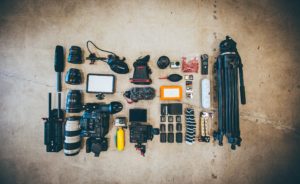
- Camera (Preferably a Camcorder)
- Tripod
- Microphone
- Secondary Recording Device (Optional)
- Computer (For Editing)
- And Headphones
- Camera Bag
Optional
- Paperwork Folder
- Battery Packs
- Lighting
Not-So-Optional, Optional
- Business Cards
- Web Presence
If you can go through this list, and check them all off, then you are ready to get to work. If you cannot check off everything in this list yet, don’t worry. Most of these items can be found on marketplace sites, online stores, Amazon, or in your local area for reasonable prices.
At first, it may seem like a big chunk of money to put down on equipment but think of it more like a business investment. The better the equipment you have, the easier and more efficiently you will be able to film each deposition.
The last thought I have for you is, bring something with you to each deposition that you can work on as the deposition is going. Some can be very long, but as long as you are not a distraction, you can get work done while being at work.



